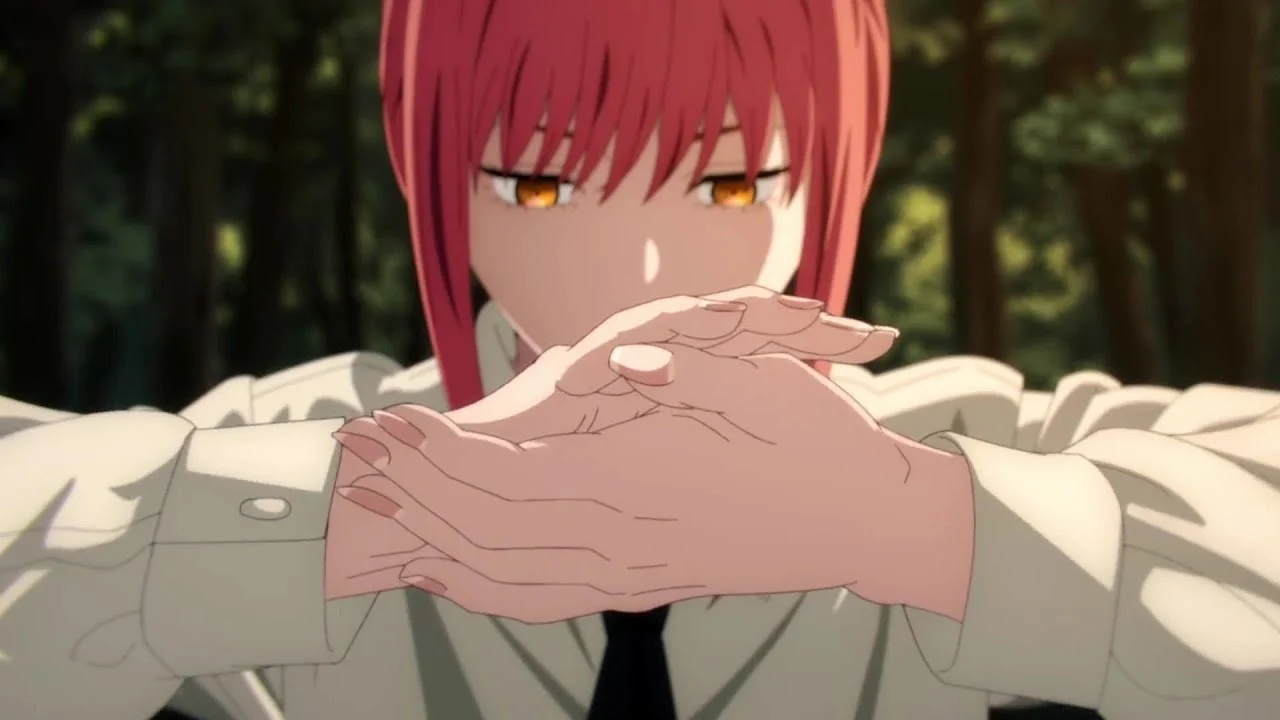
‘Chainsaw Man’ expertly builds tension and fear without relying on excessive gore. The show uses subtle techniques like unsettling camera angles, sound design, and complex character interactions to create a lasting sense of dread and claustrophobia. These ten moments demonstrate how the animation studio, MAPPA, focuses just as much on creating a chilling atmosphere as they do on action sequences. Expect mounting tension built through quiet dialogue, still imagery, and cleverly designed environments – all without a single graphic cut.
The Hotel’s Endless Hallway Trap (Episode 6)
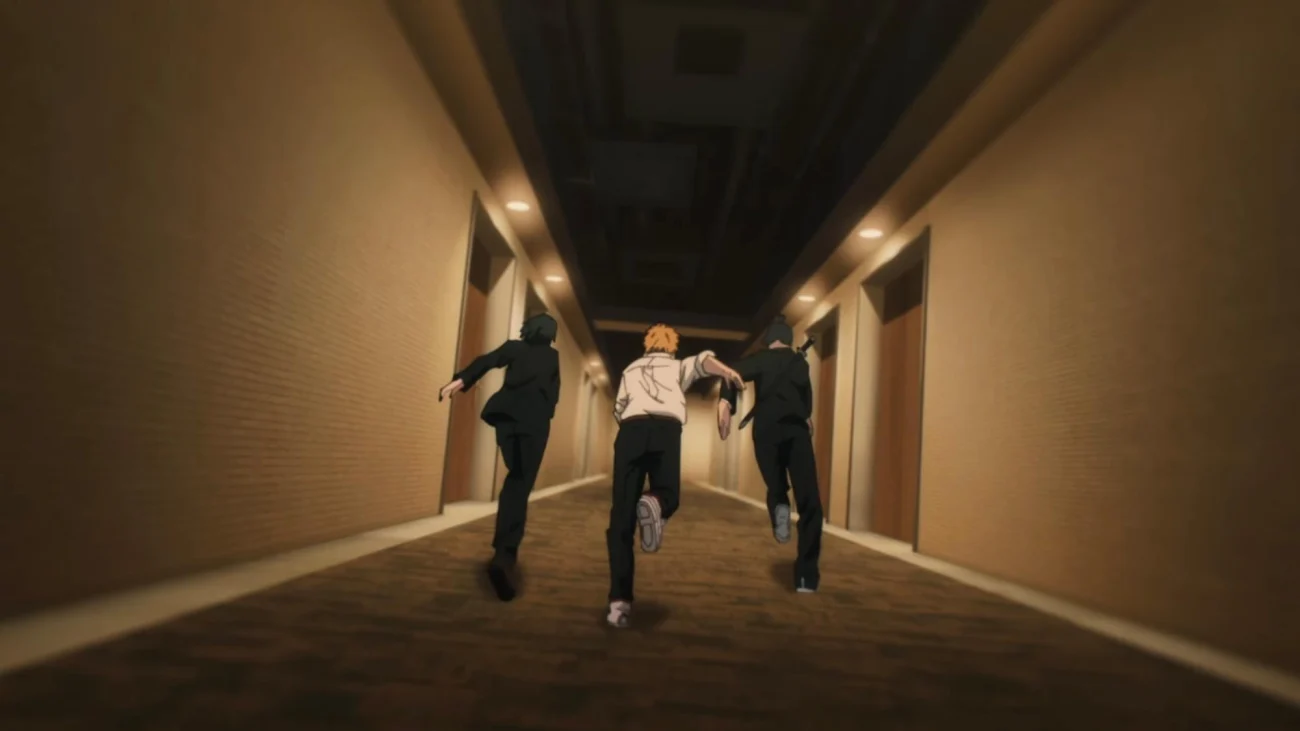
Stuck on the eighth floor, the team in Division 4 realizes the hallway is a bizarre loop – clocks are stuck at the same time, and windows don’t lead anywhere. The filmmakers use clever camera angles, focusing on repeating patterns and empty spaces, to highlight the impossible layout. While the team tries to logically map the area and test different routes, each attempt only makes things worse. The lack of a clear threat creates a growing sense of claustrophobic panic throughout the story.
Kobeni’s Breakdown in the Stalled Search (Episode 6)
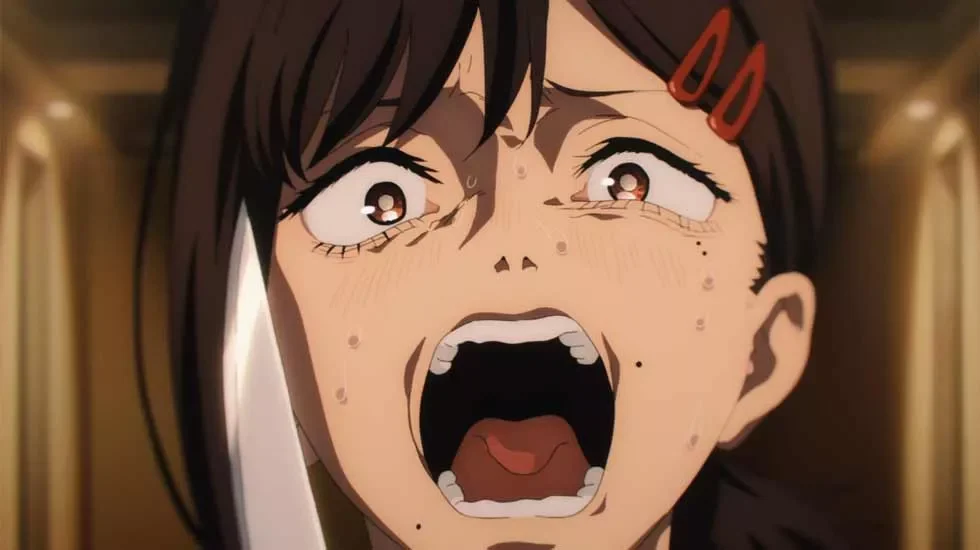
Kobeni becomes increasingly distressed as she grows exhausted and fearful, lashing out at her teammates while desperately apologizing and waving a knife. The shaky camera work, her gasping breaths, and tense body language effectively convey her instability without depicting any actual violence. The other characters respond by keeping their distance and speaking cautiously, trying to de-escalate the situation. The whole scene feels incredibly fragile, like one wrong word could lead to disaster.
Makima’s Car Ride Command: “Be My Dog” (Episode 2)
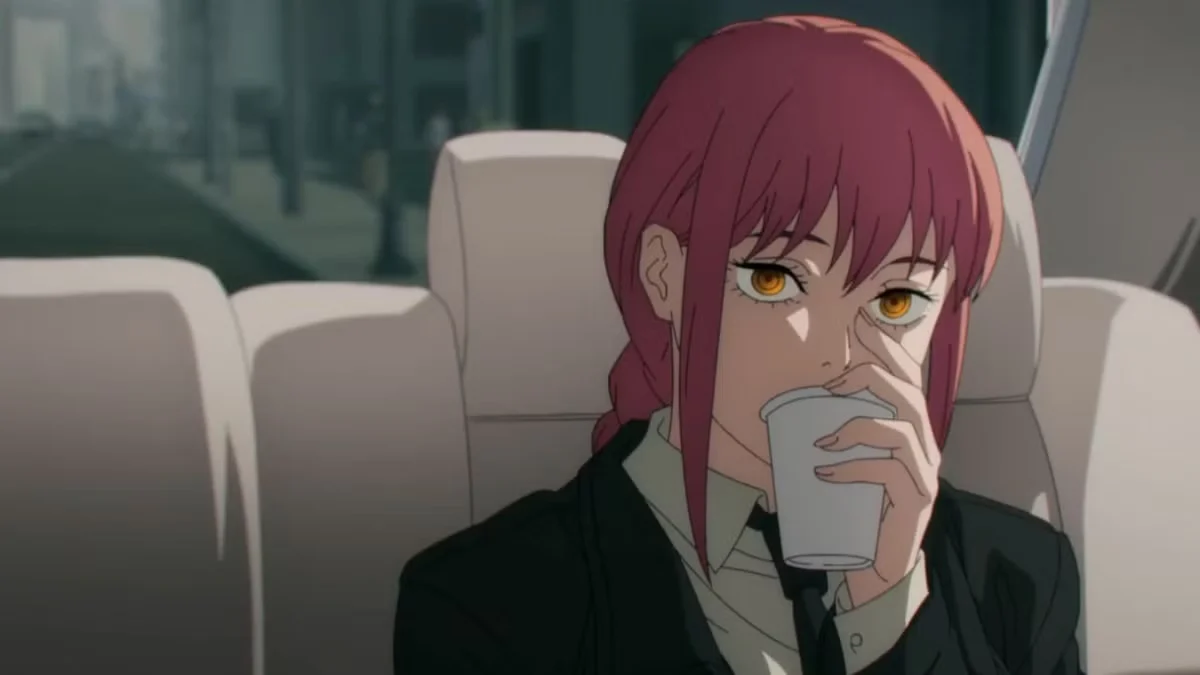
When Makima picks up Denji, she calmly lays down the rules, making it clear he must obey or be discarded. The peacefulness of the car and the soft light emphasize the imbalance of power between them. Denji, focused on the promise of food and a place to stay, enters into a simple agreement with Makima. The scene shows how she establishes control not through intimidation, but through her calm demeanor, body language, and conditional acts of kindness.
The Temple Ritual in Kyoto (Episode 9)
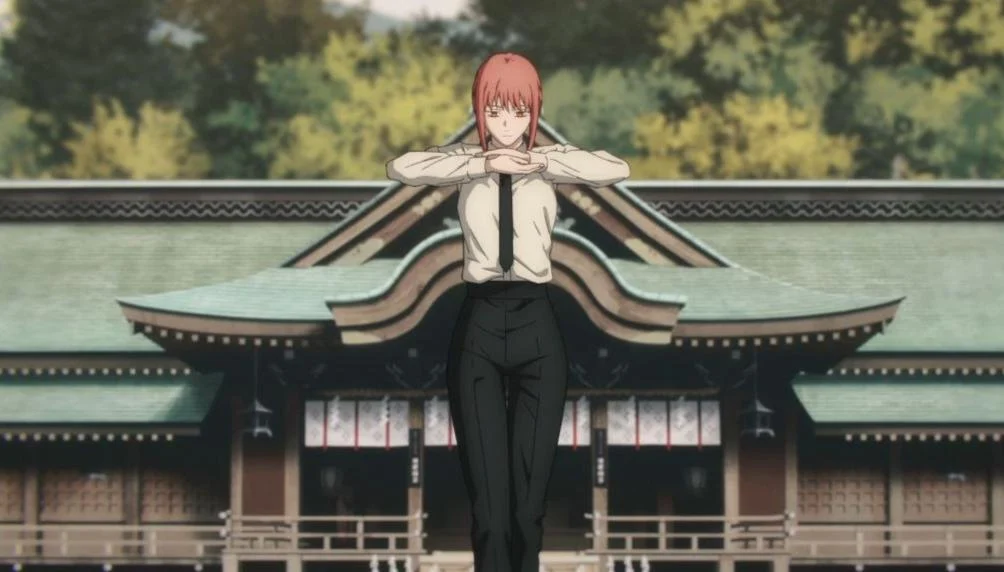
In a hidden temple, Makima oversees a ritual with blindfolded prisoners. She makes them recite names while she moves her hands in a deliberate pattern. As she does this, those targeted fall silently out of view, signaled by rising wind and tolling bells. The camera focuses on Makima’s composure and the prisoners’ responses, while guards mechanically confirm each outcome over the phone. The scene conveys Makima’s power and the deadly results of the ritual through calm, controlled actions – never showing any visible injuries.
Himeno’s Cigarette Pact with Aki (Episode 5)
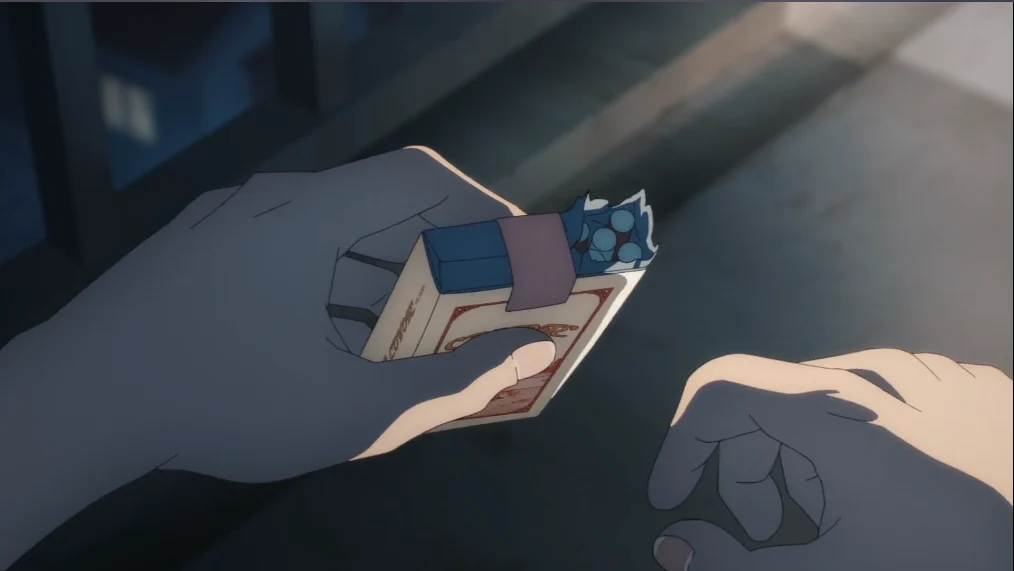
On a peaceful balcony, Himeno offers Aki a cigarette, a symbolic gesture representing a promise to help each other survive—essentially, an agreement about who will save whom. Though it seems minor, the moment emphasizes the difficult choices they face. Their conversation highlights the personal sacrifices made by devil hunters, rather than focusing on heroism. This small, everyday act hints at the larger consequences to come, grounding the story in realistic moments instead of just action.
Denji’s First Normal Breakfast (Episode 4)
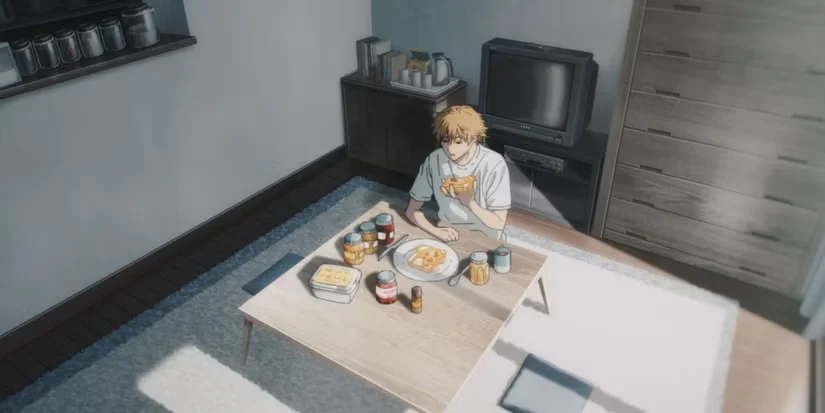
Aki, Power, and Denji start their day with coffee, toast, and everyday tasks, accompanied by the quiet sounds of a lived-in home. Denji’s enjoyment of simple pleasures, like jam, shifts the focus of the story away from grand adventures and towards finding a sense of normalcy. These scenes of domestic life—laundry, grocery shopping—feel like a delicate attempt to build a stable routine. However, the peace feels fragile, as the show has already demonstrated how easily things can fall apart.
Power’s Hilltop Confession About Meowy (Episode 3)
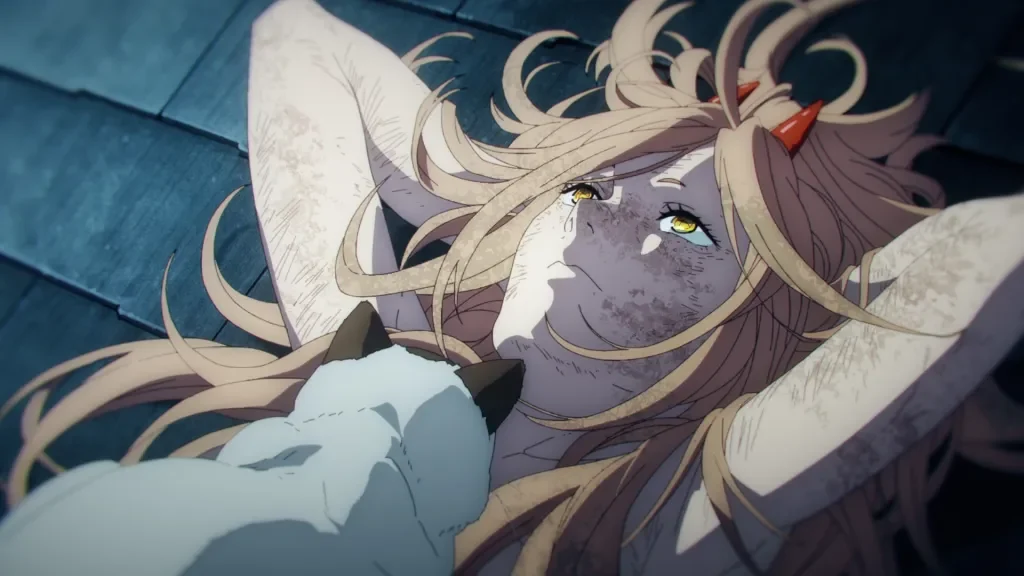
I was completely captivated by this scene. Power is just sitting there, telling Denji about her life before joining the team – a really solitary existence, it sounds like. It’s all very matter-of-fact, she’s describing her habits and why she does things without getting all emotional about it. The sound design is perfect, too – you can hear the cicadas and distant traffic, it feels so natural. What’s really striking, though, is how the silence between her words actually says something. It slowly dawns on you just how fragile and conditional her connections to other people are. It’s a quietly unsettling moment, honestly.
“Donuts” After Kyoto: The Call (Episode 10)
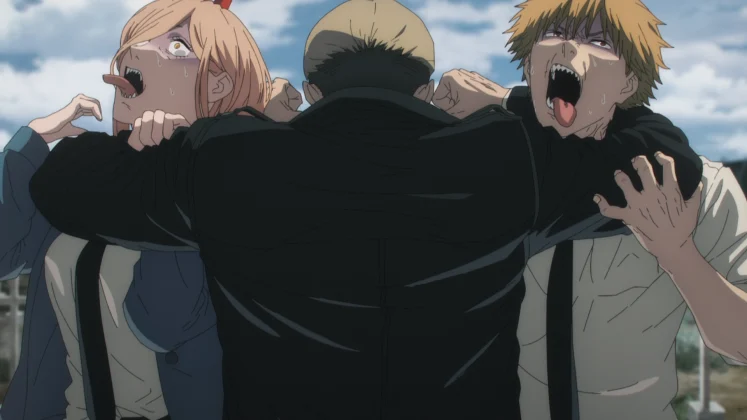
As a total cinema fan, I was really struck by this scene. After all the chaos of the attacks, Makima just calls Tokyo, totally calm, from Kyoto, and casually asks for “donuts.” It’s such a bizarre contrast – everything’s falling apart, and she’s talking about pastry! It immediately tells you she’s operating on a completely different level than everyone else. The way her colleagues answer – short, to the point, not asking how she’s doing things – is chilling. It’s not the destruction itself that feels scariest, it’s the quiet, efficient way she manages everything behind the scenes. That’s where the real power – and the real dread – lies.
The Fox Devil’s Refusal (Episode 9)
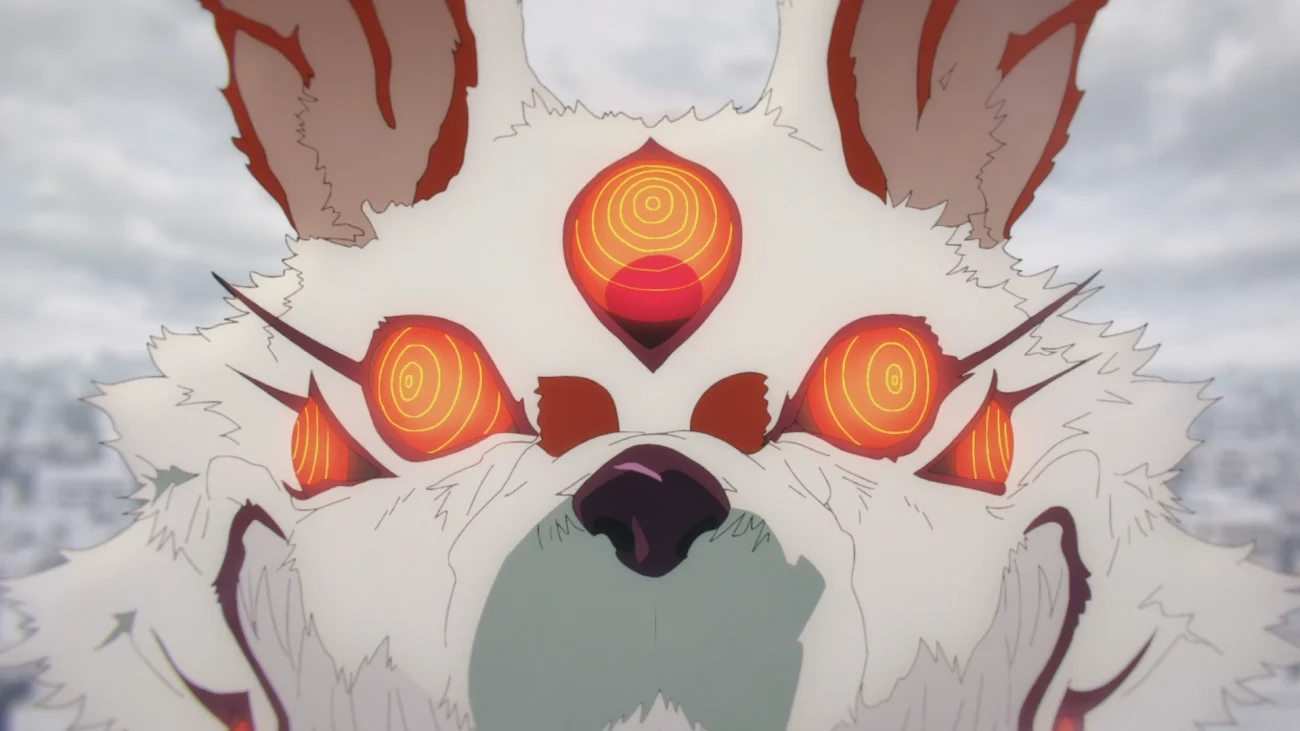
Aki, having relied too heavily on the Fox Devil, attempts to summon it again but receives no response, only a sharp rebuke from his handler. This rejection happens in the sterile environment of an office hallway and a quiet briefing room. It’s a bureaucratic issue – there’s no violence, simply a loss of access. This incident highlights that these contracts aren’t just agreements, but relationships with boundaries that can be unexpectedly severed.
Fireworks and the Promise of “Normal” (Episode 7)

During a festival, Makima talks about simple joys and then challenges Denji to think about what he truly wants out of life. The music fades out background noise, making her questions gentle yet direct. Denji’s responses show how easily he changes what he wants when he feels like someone might approve of him. What makes the scene so disturbing isn’t any obvious danger, but the subtle way Makima gains control, using kindness instead of threats.
Share the ‘Chainsaw Man’ scenes that quietly unnerved you the most in the comments!
Read More
- 39th Developer Notes: 2.5th Anniversary Update
- Shocking Split! Electric Coin Company Leaves Zcash Over Governance Row! 😲
- Live-Action Movies That Whitewashed Anime Characters Fans Loved
- USD RUB PREDICTION
- Here’s Whats Inside the Nearly $1 Million Golden Globes Gift Bag
- All the Movies Coming to Paramount+ in January 2026
- Game of Thrones author George R. R. Martin’s starting point for Elden Ring evolved so drastically that Hidetaka Miyazaki reckons he’d be surprised how the open-world RPG turned out
- 8 Board Games That We Can’t Wait to Play in 2026
- Here Are the Best TV Shows to Stream this Weekend on Hulu, Including ‘Fire Force’
- 30 Overrated Horror Games Everyone Seems To Like
2025-11-12 18:15